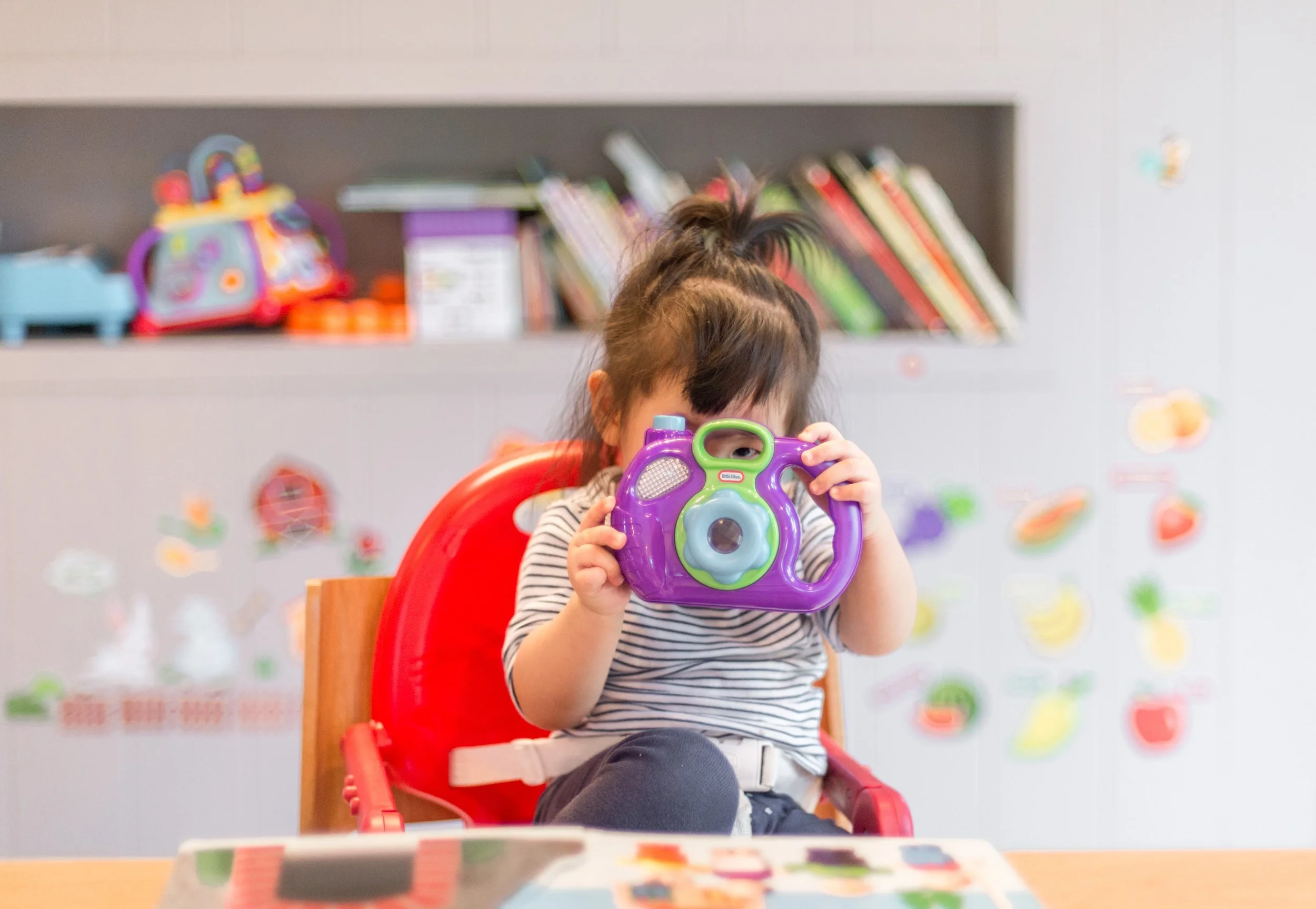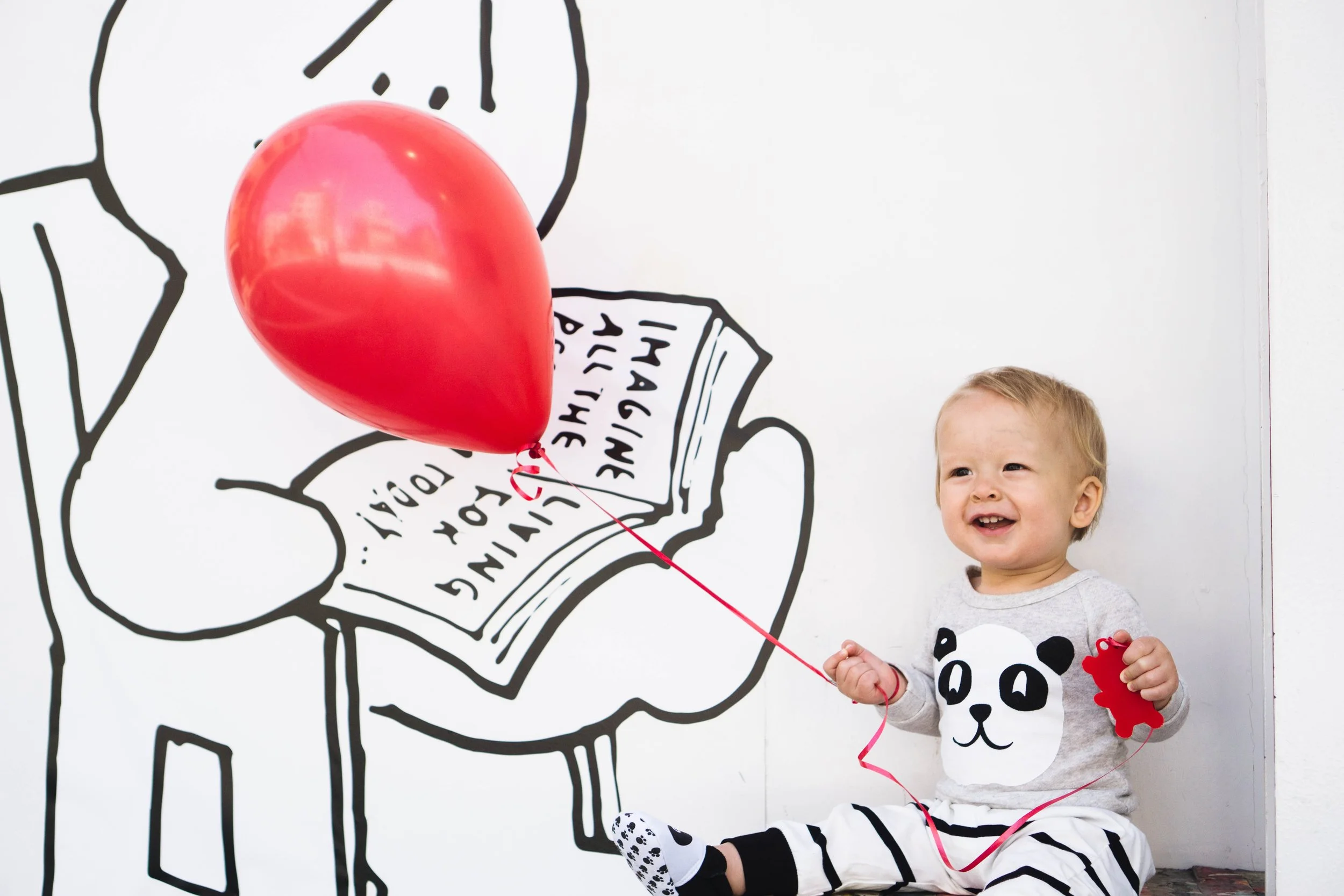Daycare and Sleep
In many families, parents work outside the home, and younger children go to daycare or have a babysitter during the day. This experience can provide kids with valuable opportunities for social and emotional learning and the chance to increase their confidence and develop their independence. That said, sleep can be a challenging issue at daycare. Whether your child is already at daycare and you want to teach them how to sleep independently, or your child sleeps well independently and is preparing to start daycare, this post is for you.
My best piece of advice when it comes to children starting daycare is to spend some time finding a provider you feel trust and comfort with, and is compatible with your parenting style and your schedule. Daycare options can be very limited, and it’s not always possible to find the perfect fit, but it’s important to look for an option that you feel will work for your family. If you’re in the process of looking for a daycare or babysitter, arrange to visit the daycare, speak to other parents, have a tour, see where your child will be sleeping, and find out what the policy or practice is for naps. If it doesn’t feel like it’s going to work for you, keep looking.
Top Tips for Successful Sleep at Daycare
Here are a few things to keep in mind when dealing with sleep issues at daycare, whether you have a child who is already there, or you’re still looking for a provider.
1. Start when you have time
If you’re just starting to teach your child independent sleep skills, pick a date to begin your plan when you have some extra time at home with your child. A long weekend works well, but if that’s not an option, even planning to start on a Friday night will give you the weekend. If your job doesn’t fall within regular working hours, find a stretch of time that works for your family. Having a few consistent days of developing those independent sleep skills at home before returning to daycare will set your babe up for success.
2. Communicate with your daycare
Daycare staff are amazing in many ways, but they’re not mind readers. Let them know that you’re working on independent sleep skills at home, take a few minutes to share your plan, and ask if they can replicate that when your child is at daycare. If you’re working with a sleep consultant, ask if they have something you can share with your daycare to explain your plan in more detail.
Make sure to let the staff know how you are responding to your child’s cries. If you’re okay with your babe fussing or crying for a few minutes before they fall asleep, let the staff know. If you want them to respond to your child’s cries immediately when they wake or if you want them to wait a few minutes before they respond, let the staff know. Some daycares have policies in place to respond immediately to children’s cries, so be aware that this may not always be possible.
Share with them which sleep props you’re okay with your child using. For example, if you’re working to teach your child independent sleep skills without a pacifier, you’ll want to do that consistently, so ask the staff to stop using the pacifier at daycare as well. If your child has a lovey, stuffie, or blankie to use during sleep, take an extra one to the daycare and ask that it be given at naptime. If you use white noise or a sleep sack at home, ask to leave an extra at daycare to be used for naptime there.
Offer to give your provider a sleep log to keep track of your child’s daytime sleep. Daycare pick-up and drop-off can be a hectic time, and you may not always have the time or opportunity to talk with staff about the specifics of your child’s naps. Creating a log you can grab at the end of the day where they can keep track of how your child went to sleep, the use of any props, and the length of their nap is an easy way to get that information.
If the daycare staff agree to follow your plan, that’s wonderful. But not every daycare provider will be willing or able to do exactly what you’ve been doing for naps, and if that’s the case, there’s nothing you can do (apart from look for another option). Focus on the work you’re doing at home with your child and know that their sleep skills will continue to develop.
3. Daycare naps might look different, and that’s okay (for the most part)
As an elementary school teacher, I am constantly amazed by conversations with parents where they tell me their children behave in a completely different manner at home than at school. Children, even babies, are often able to distinguish a difference between home and school, or in this case, home and daycare. If your daycare isn’t willing or able to do naps at the same time or in the same way that you do at home, your little one will probably surprise you and adapt to the difference without a huge struggle. There is a certain amount of peer pressure that happens at naptime in a daycare, and it can be a positive experience. If a large number of their peers are laying quietly and going to sleep, there’s a strong chance your babe will want to do the same.
A difference in the time your child goes for their nap, where they nap, or how they nap may not create an issue for you at home, but the length of time your child sleeps is the exception. It’s important that your child has age-appropriate naps throughout the day, and for most kids, that means a nap should be no longer than 2 hours. Most children need approximately 12 hours of sleep at night, along with their daytime sleep. If they’re getting too much sleep during the day, they simply won’t be ready for that long, consolidated stretch of sleep at night that is so important for the brain and body. Asking your daycare to wake your child if they’re sleeping longer than 2 hours will set them up for success at night. Letting them sleep longer than 2 hours or take a nap if they’ve dropped their last nap may mean they’re not ready for sleep at their regular bedtime, and late nights can lead to overtiredness very quickly. Avoiding overtiredness is something both parents and daycare providers will want to do.
Most daycares are very happy to have children with independent sleep skills who are well-rested and ready to play. Chances are the staff will want to do their best to accommodate your requests, as long as they don’t contradict the daycare policies and they have the time and staff to do so. If, for some reason, the staff is not able to do what you ask, keep your focus on your efforts to teach your child those independent sleep skills at home. Daytime sleep is important, but the sleep that happens during naps isn’t as high quality as night time sleep, so if your child has to miss out on some sleep, naptime is the best place for that to happen.
A sleep consultant can be a great resource to help you navigate a path between sleep at home and sleep at daycare, particularly if you’re just starting to work on independent sleep skills with your child. If you would like some support, please reach out; I’d be happy to help you do just that.


